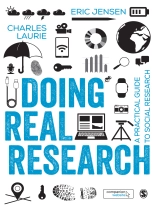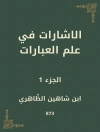Challenging the formality and idealized settings of conventional methods teaching and opting instead for a real world approach to social research, this book offers frank, practical advice designed to empower students and researchers alike.
Theoretically robust and with an exhaustive coverage of key methodologies and methods the title establishes the cornerstones of social research. Examples reflect research conducted inside and outside formal university settings and range from the extremes of war torn countries to the complexities of school classrooms.
Supported by a wealth of learning features and tools the textbook and website include:
- Video top tips
- Podcasts
- Full text journal articles
- Interviews with researchers conducting field research
- Links to external websites and blogs
- Student exercises
- Real world case studies
Tabella dei contenuti
Introduction
PART ONE: LAYING THE FOUNDATIONS
Chapter 1: Research design: Planning for the unknowable, the unexpected and the undesirable
Chapter 2: How to do a literature review: Using existing evidence and ideas to build a foundation
Chapter 3: How to be an ethical researcher
PART TWO: IN THE FIELD
Chapter 4: How to manage risk: Protecting yourself and your equipment
Chapter 5: How to find a representative sample
Chapter 6: How to gain research participation
PART THREE: DATA COLLECTION METHODS
Chapter 7: How to do Survey Research
Chapter 8: How to do interviews and focus groups
Chapter 9: How to use existing data: Challenges and opportunities
PART FOUR: MANAGING AND ANALYZING DATA
Chapter 10: How to manage your data
Chapter 11: How to do qualitative data analysis
Chapter 12: How to do quantitative data analysis
PART FIVE: PRESENTING YOUR RESEARCH
Chapter 13: How to Write up your Research
Concluding Thoughts
Circa l’autore
Eric Jensen is an Associate Professor in the Department of Sociology at the University of Warwick. He has two main research specialisms: Public engagement, and media. He also contributes to the development of impact evaluation methodology and social change theory. His research on the impacts of public engagement cuts across a wide range of settings, from zoos to conservation training programmes to museums.












